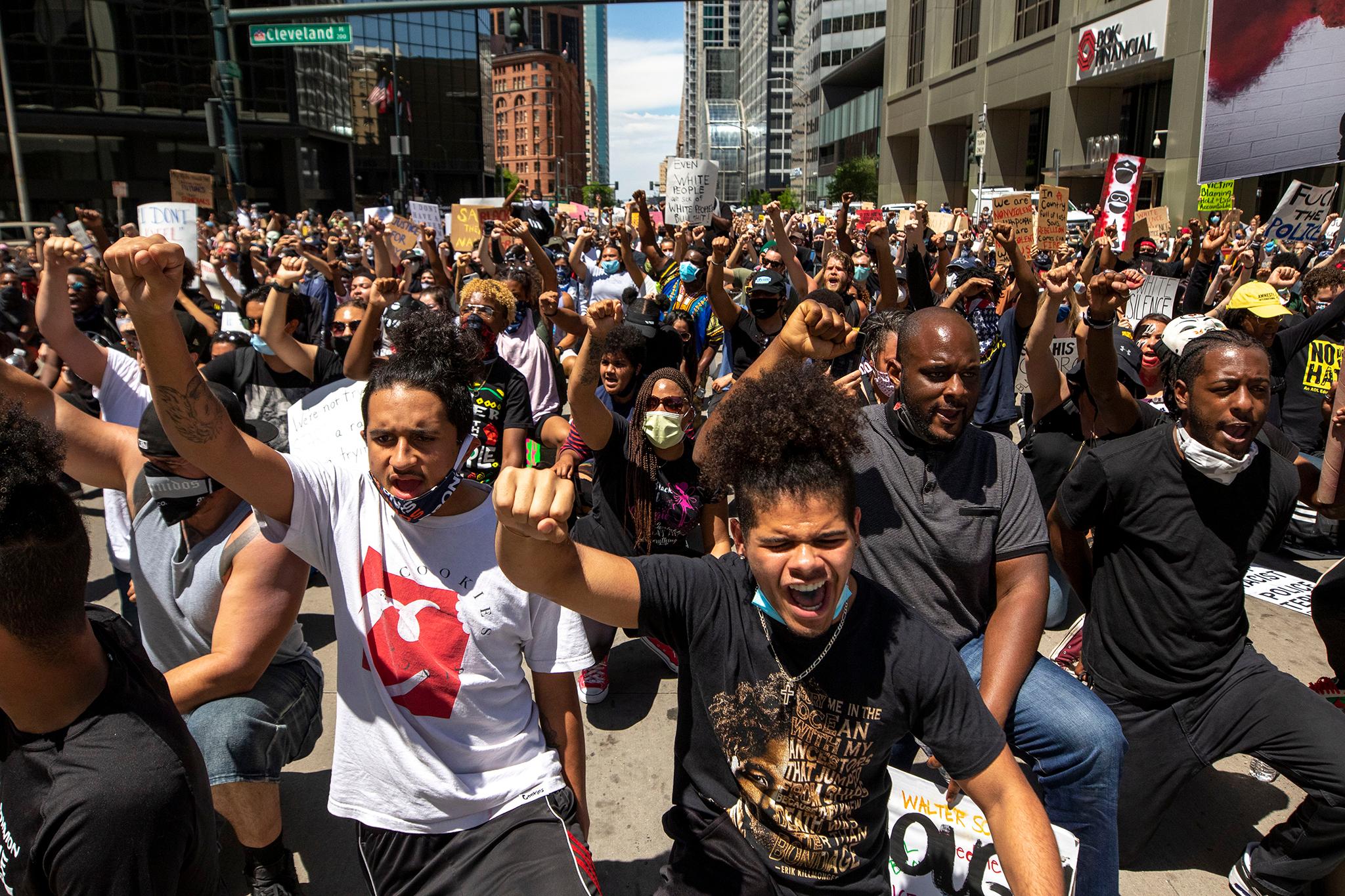Attorneys delivered opening statements Monday in a federal civil rights trial over the Denver Police Department's use of force during the 2020 protests against police brutality.
Complaints filed on behalf of a dozen plaintiffs injured by police said the department carried out "overwhelming and unconstitutional uses of force" during the demonstrations that followed George Floyd's death. The department's actions violated protesters' first amendment rights to peacefully assemble and left many with permanent injuries, said Tim Macdonald, a lawyer with the ACLU of Colorado.
"The evidence will show that it was a failure of leadership, a failure of training, a failure of supervision that led to the harms that our clients suffer," Macdonald said. "And at the end of this case, we will ask you to hold Denver accountable."
Macdonald walked jurors through the stories of his clients, who he said were injured by police during the first several days of protests in late May and early June 2020.
Macdonald said Dr. Stanford Smith, a dental school student who had never protested before, was moved to participate after seeing the video of George Floyd's murder online. On the afternoon of June 2, Smith drove from Aurora to downtown Denver.
Within "10 to 15 minutes" of his arrival, Macdonald said, police fired a flash bang grenade into the crowd and shot Smith in the back with non-lethal ammunition. Later that day, Smith walked between protesters and police with his hands up, trying to deescalate the situation.
Video evidence shows Smith thanking an officer during a quiet moment, Macdonald said. Then, not long after, another officer pepper sprayed Smith in the face "with no reasoning," he said.
Another plaintiff, Hollis Lyman, a physical trainer and coach who had previously worked in police departments, was shot in the back with non-lethal ammunition while kneeling in the street. Macdonald showed a photo of a homemade sign Lyman made, pointing out a hole where one of the rounds went through.
"These are not people committing violence and breaking windows," Macdonald said, kneeling in the courtroom with his hands up in the air. "These are people raising their voices."
Makeba Rutahindurwa, another attorney representing the plaintiffs, said several clients still have nightmares about their experiences.
"You cannot justify violence," Rutahindurwa said. "You cannot do anything you want just because someone breaks the law. It has to be reasonable. The force used here was unreasonable."
The defense's opening statement suggested otherwise. Attorneys representing the Denver police argued they were acting in the best interest of public safety while surrounded by chaos. Officers had trouble distinguishing between peaceful and non-peaceful protesters, said Lindsay Jordan, the city's attorney.
Jordan told jurors that protesters' first amendment protections "are not unlimited."
"What can limit these protections? Unlawful behavior," Jordan said.
She showed photos of broken business windows, fires and a video of protesters blocking traffic on Interstate 25. Jordan told jurors that some protesters threw rocks and bottles of feces and urine at police throughout the demonstrations.
"We all understand why. A jury in Minneapolis found what happened to George Floyd was murder," Jordan said. "However, when justifiable anger turns into violence and destruction, it is the responsibility of the police to intervene as a matter of public safety."
The trial is expected to last up to three weeks. The judge overseeing the proceedings is Hon. R. Brooke Jackson, the same judge who issued a temporary restraining order against DPD during the protests, restricting police from using projectiles and chemical agents.
The protesters' complaints name the City and County of Denver and several high-ranking police officials as defendants. It is being tried as a civil case -- not a criminal one.
Depending on the jury's ruling, DPD could face monetary fines for violating protesters' civil rights. It could also face a court order requiring it to overhaul its policies and training procedures, said Mark Silverstein, legal director for the ACLU of Colorado.
"Even a monetary damage award against the city and county of Denver itself is going to highlight the fact that what happened is unacceptable and something needs to change," he said.
The case is among the first in the country to take police to trial over their behavior during the 2020 demonstrations, Silverstein said. Juries found the Minneapolis police officers involved in Floyd's death guilty of murder and violating his civil rights.












